- Home
- Vicki Delany
Whiteout Page 10
Whiteout Read online
Page 10
“Hi, Tiffany.” Joanna stopped in front of the group. One of the boys snorted in amusement. Tiffany shifted her thin shoulders and took a deep drag as the cigarette, or whatever, was passed to her. She blew smoke and handed it to the girl next in line.
“I’m heading back to Hope River now. Would you like a ride?” Tiffany was sitting on the ground. She looked up at the boy looming over her and rolled her eyes.
“Get lost, lady. We don’t need no ride.” The boy took a step toward her and Joanna instinctively moved back.
“I’m not talking to you.” She tried to catch Maude’s granddaughter’s eye, but the girl refused to look at her. She didn’t like the emptiness in Tiffany’s expression. “How about it, Tiffany? We could stop for a burger and fries on the way home.”
The kids all laughed.
“A burger, oh, excitement city. And fries, whoopee, can we all come?” The boy standing over Tiffany had hair cut like a flowerpot; it was shaved across the back and sides, leaving a few strands of greasy mop hanging down from the crown of his head. A skull was tattooed into the right side of his scalp. The others all laughed as if on cue.
“Get lost, old lady,” he sneered. “Tiff’s okay. She’s with us.”
Joanna shuffled her feet and glanced behind her. “I think you should come home with me, Tiffany. It’s getting late and your grandmother will be worried.”
“We’ll take her home. Get lost. Tell her, Tiff,” the boy ordered. He passed the toke to the girl on the ground, out of turn.
Tiffany closed her eyes and took a deep drag. Silence stretched painfully through the alley. Tiffany clutched the joint in her fingers and sucked again. “Fuck off, Joanna. These are my friends. I don’t need you showing up here like some kind of fucking baby-sitter. I’ll go the fuck home when I’m good and fucking ready.” The group all laughed. Joanna recoiled as if she had been struck. The pain of confrontations remembered leapt up as sharply as the pain in her wrist. She stared at Tiffany. The girl passed the toke on to the next person and sunk her head into her knees. The boy with the flowerpot haircut took a step forward, his fists clenched.
“Everything okay here?” A voice from the sidewalk broke the tension like a warm knife slicing though ice cream.
“Yeah, sure man. We’re all cool.” The boy nudged Tiffany with a mud-encrusted boot. “Get up, bitch. We’re outta here.” Her head nodded but she didn’t respond. He grabbed her arm and hauled her roughly to her feet. The group moved sluggishly down the alley and disappeared behind the building.
Joanna made a move to follow, then stopped, caught in an agony of indecision.
“Let them go, Joanna. You’re no match for them.”
She turned to face the new arrival. It was Scott O’Neill. “I don’t think you’re qualified to be a judge of juvenile behavior,” she snarled.
“No, I’m not. But you can’t fight with that crowd.” He reached out and touched her arm. “Come on. I feel like a cup of coffee. Join me?”
Joanna winced; he had touched her left arm. Scott noticed but said nothing. For such a large man he moved carefully, almost delicately, staring at her face while he backed out of the alley. She followed.
“Do you know that girl?” Scott asked.
“Yes, I know her.”
“And…”
“She is Maude Mitchell’s granddaughter. I teach her how to use the computer a couple of times a week. Don’t you know who she is?”
“I heard that she was back, but I haven’t had the pleasure. These kids today. Nothing but trouble. They can do anything they want, and the law doesn’t touch them. Just a slap on the wrist. A good stretch in boot camp would straighten that lot out, if you ask me.”
“Well, I didn’t ask you. They aren’t doing anything illegal, you know. It’s not a crime, not yet anyway, to swear in public, or to hang around behind a strip bar.”
“What the hell do you think they’re smoking there, tobacco? Those kids were stoned up to their eyeballs.”
Red swam in front of her eyes. “But if they were a few years older they could go into the Last Chance Bar here and drink themselves under the table, ogle a few naked women who are just trying to earn a living and then go outside and puke their guts up, and all the good-time-boys like you would slap them on the back and say what real men they were.” Joanna was shouting now. An elderly couple crossed quickly to the other side of the street.
Scott dropped his voice. It was menacing in the quiet of the afternoon. “I never congratulate anyone for being such as fool as to drink themselves into oblivion. Neither desperate naked women nor gut-puking do much for me. But if you don’t sort kids like that out right now, they’ll be in places like the Last Chance, or worse; and let me tell you, there are lots worse, as soon as they can produce fake ID. They’ll stay there for the rest of their lives drinking up their weekly pay while their wives raise ten kids on the pittance hubby has left over after the Friday night drunk.”
Joanna clenched her fists to stop her hands from shaking and thrust her jaw forward. “That is no concern of mine,” she hissed. “They can all go to hell in a hand basket, for all I care.” She pushed Scott out of the way and started off down the street, her body as tight and rigid as her jaw.
Scott caught up to her. “Leave it alone, Joanna. Once a kid’s gone bad, they’re bad. From then on they’re beyond hope.”
She turned in fury. Her face was red and she hissed from between clenched teeth. “No one is ever lost, not ever. Do you hear me? Not ever. And if I give up, may it be the day I die.” Joanna swiped ineffectually at him with her purse, turned on her heels and ran.
Scott stood rooted in his tracks and let her go. This was about far more than a group of punks smoking dope in the alley behind the Last Chance Bar. He knew when he was way, way, out of his league.
Late that evening Joanna was still mad at the world, at Tiffany for being such a fool as to allow herself to be manipulated by that bunch of louts, at Scott for his blindness to the girl’s innermost problems, at her daughter Alexis for exposing her family to the world of troubled and angry teenagers, and then abruptly breaking off all contact with those who wanted so much to help her. But above all she was angry with herself, with Joanna, for falling into a fool’s trap of caring for other people and allowing herself to get involved in their problems.
She clattered angrily about her little kitchen, banging cupboards closed, rattling the crockery, scrubbing pots with a vengeance until they gleamed, drinking far too much wine. One-handed she furiously swung the mop at a speck of mud on the kitchen floor. Out of control, the mop swerved wildly and caught the side of her wineglass, knocking it to the linoleum in a crash of glass and a spray of ruby red liquid. “Oh, for heaven’s sake,” she groaned and tiptoed back from the shards of glass. It was a full glass, curse it. She fetched a broom and dustpan and set about sweeping up the damage. The little kitchen trashcan was already filled past the brim and close to overflowing, so she tipped the glassy contents into a plastic bag and scooped up the garbage bag. Maneuvering the backdoor open with her good hand and with her butt propping it in place, she picked up the bags of trash with their glassy burden and carried them out into the night.
Like everyone’s in this northern community, her garbage sat by the road waiting for pickup in a large, homemade wooden chest with a tied-down latch. The latch was there to keep out bears and raccoons and other large animals with dexterous fingers or claws and good brains. She placed her bags on the ground at her feet and fumbled with the latch. Sometimes it seemed as if raccoons weren’t the only things locked out by human ingenuity.
Finally her garbage was stuffed into the chest and everything tightly secured once again. She walked down the hill back to her cabin, taking the time to let the beautiful evening remove the sting from her anger. The night was mild, clear and calm. Snow crunched beneath her boots. She took a deep breath of crisp winter air and stopped to admire the display of stars above.
An owl hooted and she glanced up to see
a huge great horned owl staring wide-eyed at her from a branch in a knotted old white pine. The enormous bird stared her down and Joanna broke her gaze to look back up at the star-studded sky.
It was gone. A thin layer of fast-moving clouds covered the heavens. A sharp cold wind blew down from the north and pierced through Joanna’s thick winter sweater. She looked into the pine. The branch was empty.
But beneath the old tree a black shape slowly formed out of the blackness of the forest night. She stared, open-mouthed. Black was black, none lighter or darker than the other. But the shape before her was able to form substance out of darkness and a presence out of black. For a split second while Joanna stood paralyzed, the shape undulated softly before her. Then it broke from the all-encompassing darkness under the tree and moved forward. Blackness separated from blackness. It appeared to be reaching out for her, like a child reaching for a parent, a drowning man reaching for a life preserver.
Joanna squealed and ran. As fast as she could go, she dashed down the driveway to the cabin. She stumbled up the steps, slammed the door behind her and stood with her back against it, gasping for air.
She stood with her back pressed against the door for a very long time, shutting out she knew not what.
Chapter 11
This time she didn’t make it into the woods. She was barely out the door before the heaving in her stomach forced her over the porch rail, spewing the remains of breakfast onto the piles of yellow and red leaves blown up against the walls of the cabin. She remained bent over the rail gasping for breath, her stomach still trying to rid itself of its nonexistent contents, until she heard the screen door creak open. She wiped her mouth on her shirtsleeve, took one deep breath and turned to face her mother.
“What’s the matter with you, girl?”
“Nothing, Mama.”
Her mother shoved her heavy breasts out of the way as she folded her arms across her plain housedress, washed until the fabric barely held together. “You sick?”
“Just something I ate, Mama.”
Her mother planted her thick, vein-encrusted legs apart and crossed her arms tighter over her chest. Her breasts wiggled with the effort. “You think I don’t hear you out here every morning these last few days? Last time I was sick like that, I was carrying your baby sister. Is there something you want to tell me?”
The girl looked at her mother’s feet in their old slippers, one corn-encrusted toe sticking out from a ragged hole in the side. “No, Mama.”
The woman’s face softened slightly and she shifted uncomfortably. “I don’t know what your papa’s gonna say to this.”
“Yes, Mama.” She still did not look up.
“Run along now, go and wash your face. I need help in the kitchen. Your papa will be wanting his breakfast in no time.”
“Yes, Mama.”
The girl slipped past her mother and into the cabin. The woman gazed after her, blue eyes sad and thoughtful. Then she shook her head and straightened her shoulders; breakfast wouldn’t cook itself. She returned to the kitchen, just in time, as the porridge bubbled over the edges of the pot.
Soon enough the sickness stopped, and the household slipped into a strained silence. Mother and daughter, who rarely exchanged words at the best of times, almost ceased to speak. The mother watched her daughter with heavy, troubled eyes. The girl took to wearing her older brothers’ old shirts, stolen out of the rag box.
“Where have you been, girl?” Her father stumbled from the back room, unshaven for days, bleary-eyed, his slate-gray hair standing on end, his huge belly draped over stained and torn boxer shorts.
“Out.” The girl stared at the floor as she held in her breath and attempted to pass into the kitchen.
“Out, I know all about your ‘out.’ Out drinking you mean, out carousing with every no-good drunk in town.” He grabbed her by the arm and his voice rouse to a fevered pitch.
One by one the boys crept out of their beds and gathered silently to watch the show. They didn’t ever have the money to go to the pictures in town on a Saturday night. This would have to do. It usually did.
She lifted her head and stared her father in the eye. “Not every no-good,” she said, “I didn’t see you there.”
With a roar the man lashed out and struck her in the face. The girl fell to the floor and wiped gently at her mouth with the back of her hand. “Did you enjoy that?” she asked in a soft voice.
He pulled back his foot and aimed a powerful blow into the girl’s exposed stomach. She could see his wrinkled, flabby balls though the gap in the boxer shorts as the foot connected with its target.
Through a haze of pain she barely heard her mother’s thin voice shouting from the kitchen, “Stop it, stop it.” As always her father paid no attention. The boys grimaced but couldn’t turn away. Once their father’s anger was directed it wouldn’t turn on them, as long as they kept quiet.
He reached down and dragged the gasping girl to her feet. He punched her in the face, once, twice, three times: blood spurted from her nose, and dripped down the front of her brother’s plaid shirt.
From the back room a thin cry cut into the silence. With a gasp the mother slipped out of the room. She grabbed the baby from her crib and rocked the child furiously in her arms. She hummed a lullaby, dimly remembered from her own childhood, but scarcely comforted by the frantic rocking and unsettled by the tension in the cabin, the baby cried all the harder.
Once again the girl wiped her face. She stood up straight. “As I said, old man, did you enjoy that?”
The youngest boy gasped and the father, suddenly aware of his silent family watching the scene, turned on him. “Get out of my sight, you lot, this is no business of yours. Get out of here before I tan the lot of you.” He lunged for the nearest boy.
The boys ran for the door, falling over each other in their haste to get out of the reach of their father’s thrashing fists. Like a pack of young wolves they disappeared into the snowy woods, dressed only in their nightclothes with nothing on their feet.
Distracted by his sons the man forgot his daughter the moment his back was turned to her. He stumbled forward and collapsed in a filthy heap on the nearest chair. He closed his eyes and began to snore. From the back room, the mother’s voice singing the lullaby cracked on the notes and the baby cried harder.
The girl cleaned her face from a bucket of water beside the sink. Tears stung her eyes and slipped down her face but she did not make a sound. Once her face was as clean as she could make it, she gripped her stomach and limped past the snoring mess in the chair to collapse in her own bed.
When all was quiet in the rest of the cabin, the woman carried the now screaming baby into the kitchen and sat down at the table. She opened the front of her dress and placed the baby to her swollen and cracked nipple. The baby took one last gasp of air and settled down to feed. Her mother looked down at her in silence.
Joanna’s eyes flew open and remnants of the dream crashed around inside her head. She was instantly awake. The dream was strangely disturbing and she lay still, huddled under the quilts for a very long time, simply staring at the ceiling. She was still awake when the first weak streaks of daylight peeked through her bedroom window.
Combined with last night’s experience in the woods, the dream left a gnawing feeling of discontent that permeated deeply. The strange appearance in the woods played itself out over and over again in Joanna’s head. When she pushed it aside, the dream took over. She told herself continuously that she was imagining things, then she was scared that she was going “bush crazy.” Which was worse, a ghost outside or a ghost inside? She couldn’t decide.
Throughout the day her hand continued to ache despite large amounts of wishful thinking and her restlessness mounted. She tried to work through the pain, but Dr. Richardson’s warnings to keep her hand unoccupied kept coming back. Shifting black shapes were popping up in every unlit corner, lights remained on all day. Finally, in desperation, afraid for her sanity, she picked up the phone and
dialed Toronto.
“Fred, I have to know now,” she demanded. “Do you people have a contract for me or not? I have a really big offer from a major software company,” she touched her nose to see if it was growing, “and I have to make up my mind. If I go with them I won’t have time to do your work at least until the summer. So what’s it gonna be?” She scarcely dared to breathe.
“Joanna, I was about to call you. Of course we want you. You must know that.” He oozed charm through the phone. “How about Friday, two PM? Does that suit you? I can set up a meeting with all the principles for then.”
“Let me check my calendar.” Joanna watched a squirrel digging in the snow under the pine tree for a few moments. He came up with a prize nut and rushed off happily, the treasure clutched in his teeth. “Looks free for now,” she spoke into the phone again. “I’ll see you at two o’clock Friday, main board room. Oh, and Fred, be prepared to talk money.” She hung up with what she hoped was a decisive click.
Breathless, she collapsed back into her chair, amazed at how out of character she had behaved over the phone. Demanding decisions, confrontation, lying. She chuckled nervously, then threw back her head and broke into a full-throated laugh. Felt good, too.
Friday morning she set off before dawn, deathly afraid that something would happen to delay her arrival. Joanna knew that she had a reputation for always being early. Rather than look efficient it made her look as though she had nothing better to do. In her personal life it was worse. En route to a party once she stopped at the library, browsed the stacks, and checked out a few books. Yet, to her embarrassment, she was still the first to arrive.
In the few short months that she had been living up north she forgot how bad the Toronto traffic could be. There was a major accident on the 400 and everyone was screeching to a halt. From then on it was stop and go all the way into the center of town.
She forgot also, how much it cost to park downtown. For someone whose cash flow wasn’t up to much lately the twenty dollars for underground parking in the center of the business district was a blow.

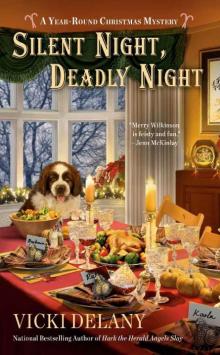 Silent Night, Deadly Night
Silent Night, Deadly Night Coral Reef Views
Coral Reef Views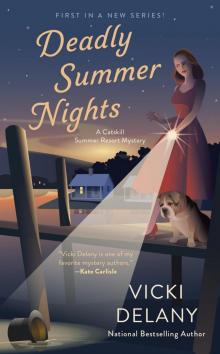 Deadly Summer Nights
Deadly Summer Nights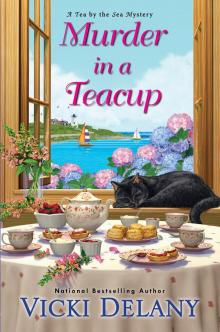 Murder in a Teacup
Murder in a Teacup Whiteout
Whiteout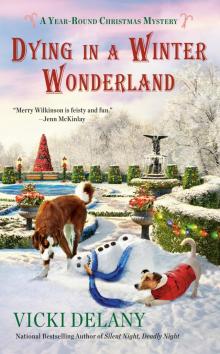 Dying in a Winter Wonderland
Dying in a Winter Wonderland Tea & Treachery
Tea & Treachery Rest Ye Murdered Gentlemen
Rest Ye Murdered Gentlemen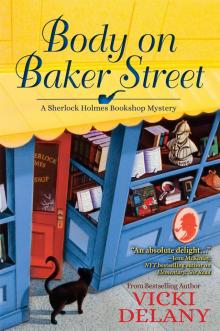 Body on Baker Street: A Sherlock Holmes Bookshop Mystery
Body on Baker Street: A Sherlock Holmes Bookshop Mystery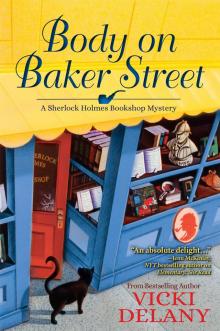 Body on Baker Street
Body on Baker Street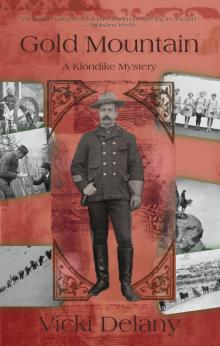 Gold Mountain
Gold Mountain Blue Water Hues
Blue Water Hues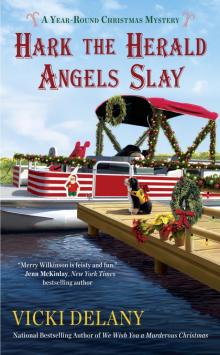 Hark the Herald Angels Slay
Hark the Herald Angels Slay Murder at Lost Dog Lake
Murder at Lost Dog Lake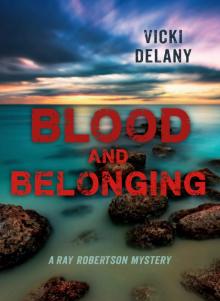 Blood and Belonging
Blood and Belonging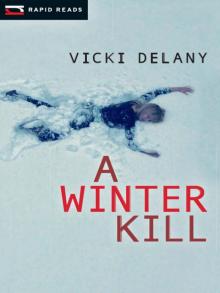 A Winter Kill
A Winter Kill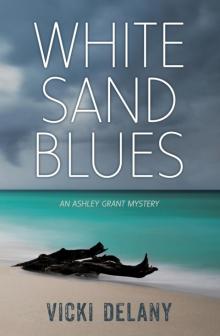 White Sand Blues
White Sand Blues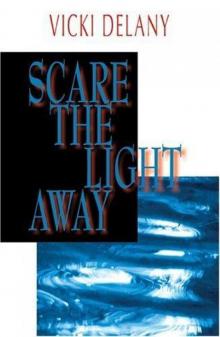 Scare the Light Away
Scare the Light Away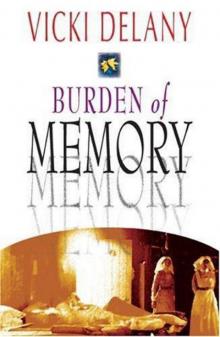 Burden of Memory
Burden of Memory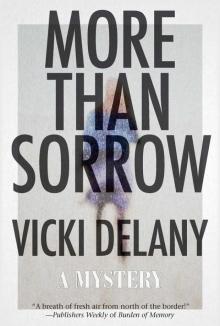 More Than Sorrow
More Than Sorrow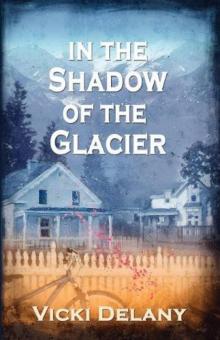 In the Shadow of the Glacier
In the Shadow of the Glacier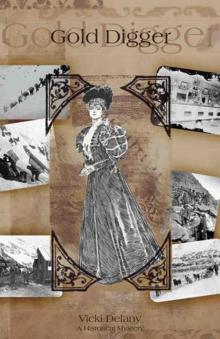 Gold Digger: A Klondike Mystery
Gold Digger: A Klondike Mystery Gold Web
Gold Web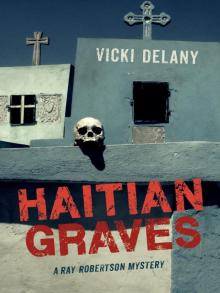 Haitian Graves
Haitian Graves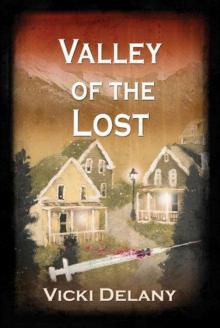 Valley of the Lost
Valley of the Lost We Wish You a Murderous Christmas
We Wish You a Murderous Christmas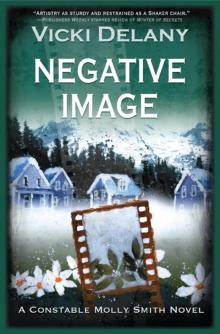 Negative Image
Negative Image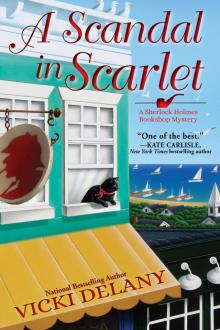 A Scandal in Scarlet
A Scandal in Scarlet Juba Good
Juba Good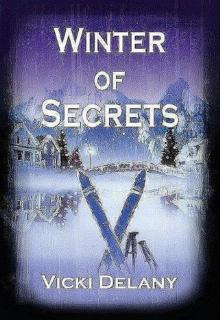 Winter of Secrets
Winter of Secrets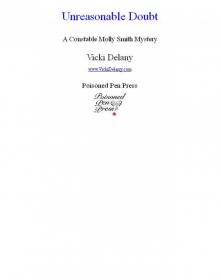 Unreasonable Doubt
Unreasonable Doubt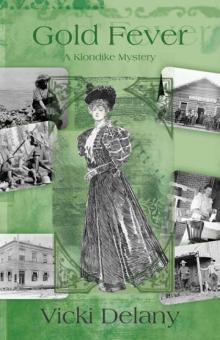 Gold Fever
Gold Fever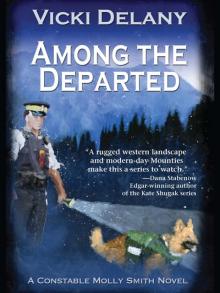 Among the Departed
Among the Departed Elementary, She Read: A Sherlock Holmes Bookshop Mystery
Elementary, She Read: A Sherlock Holmes Bookshop Mystery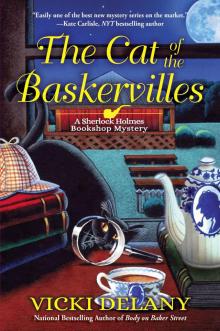 The Cat of the Baskervilles
The Cat of the Baskervilles